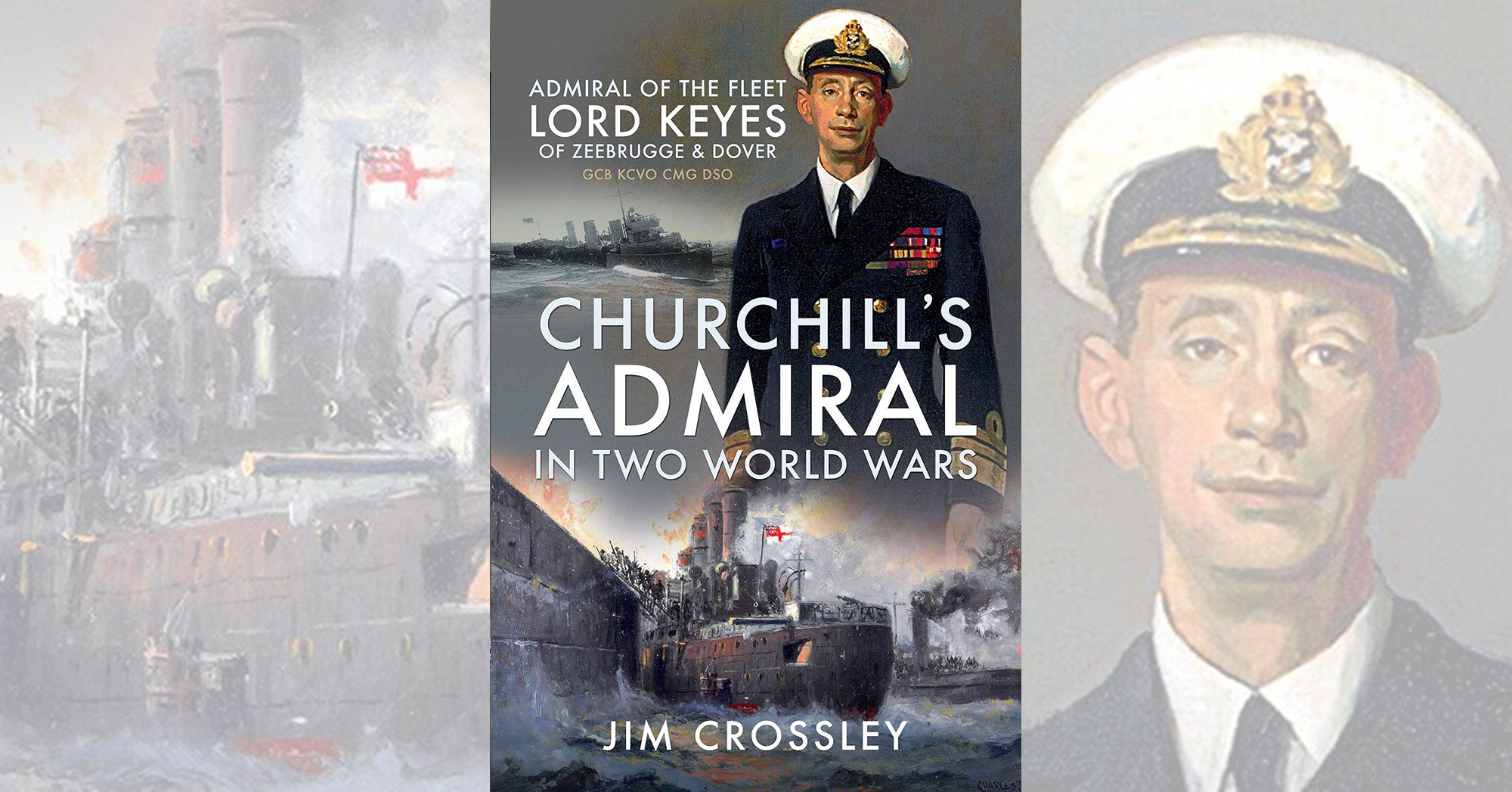Churchill’s Admiral in Two World Wars: Admiral of the Fleet Lord Keyes of Zeebrugge and Dover, by Jim Crossley, Pen & Sword Maritime, Barnsley, U.K., 2020, $49.95
A superb seaman, inspiring leader and fearless fighter, Roger Keyes was born on Oct. 4, 1872, in India. He joined the Royal Navy as a cadet in July 1885, his early service including three years in Africa combating Arabs involved in the slave trade.
He deployed next to China where, during the Boxer Rebellion, he was promoted commander at age 28, years ahead of his contemporaries. Keyes was responsible for submarine operations in the North Sea during the first months of World War I, never squandering an opportunity to strike at the enemy.
In February 1915 superiors tapped Keyes to force the Dardanelles and drive Turkey out of the war. The March 18 attack proved disastrous, minefields claiming three battleships and damaging others, and the British abandoned the operation, though Keyes would have gladly returned the following day and likely forced a passage.
Keyes’ wartime career culminated in January 1918 as vice admiral of the Dover Patrol, where he proved himself a master of narrow-seas warfare, being best remembered for the raids on Ostend and Zeebrugge with a view to disrupting German submarine operations.
Having been elected a member of Parliament in 1934, he took a prominent role in the debate that led to the resignation of waffling Prime Minister Neville Chamberlain. When the British commandos formed in June 1940, Keyes was appointed first director of Combined Operations. It was not the happiest of times. Then approaching 70, the fire-breathing admiral seemed blocked at every turn until finally, at Winston Churchill’s request, he resigned in October 1941.
Following a July 1944 visit to the Normandy landing beaches, Keyes traveled to the United States and then Australia to make a series of broadcasts. While there he was invited by Gen. Douglas MacArthur to witness the assault on Leyte Island in the Philippines.
Much weakened by his arduous journeys, Keyes died on Boxing Day 1945 and was buried in Dover beside those killed in the great Zeebrugge raid. As his friend Churchill said in a contemporary broadcast, “We have lost one of the great sailors of the Royal Navy.”
—David Saunders
This post contains affiliate links. If you buy something through our site, we might earn a commission.





